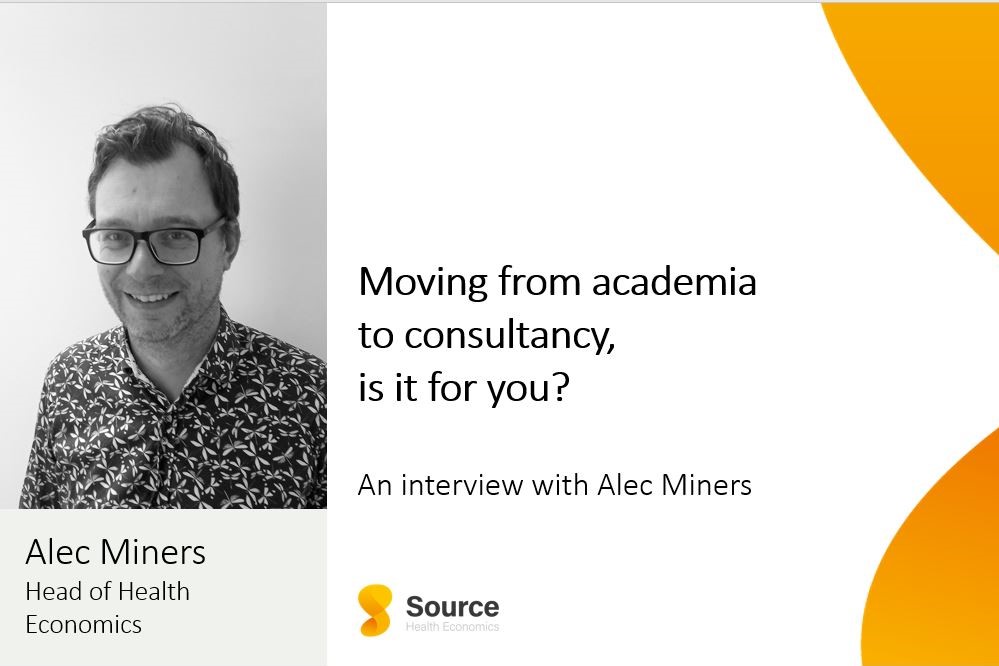Written by Alec Miners, Head of Health Economics
Contemplating ‘change’ of any kind can be daunting. Choosing a new career direction is no exception. I joined Source Health Economics as Head of Health Economics in March this year after 16 years in academia and 5 years working at the National Institute for Health and Care Excellence (NICE) (then part of the National Health Service [NHS]), so I know this first-hand.
Why did I leave university life for consultancy? Certainly nothing was wrong in my previous role. Then again, many aspects didn’t feel totally right either. Perhaps I am part of the COVID-19 Great Resignation? It’s difficult to be sure of the exact reasons, but what I can say is that (a month or so in) it has been a revitalising experience.
Source is a relatively small company, which means you quickly get to know everyone and their various roles. If there’s a problem (usually IT-related in my case – and often involving SharePoint arrgh), it’s easy to know who to ask. Source prides itself on recruiting the sharpest minds, and my colleagues are certainly testament to this. The atmosphere is vibrant and engaging. While there is a clear reporting structure, there is no sense of superiority amongst colleagues. Everyone works hard to produce high quality materials, pulling together in so doing. On my first day, my laptop, office key, and everything else I needed were all waiting for me, as was lunch! Small details perhaps, but symbolic of the environment I’m now in. The differences in resourcing levels and work pace compared with university life are striking. The latter might not be to everyone’s taste, but so far for me it has been refreshing.
In terms of actual work, no two days have been the same. They have involved meeting clients to determine cost-effectiveness model outlines, discussing the impact of NICE’s new methods document, or planning reviews of existing global models. Certainly my role is less hands on in terms of model building than what it used to be, but that was my choice, there are many different roles within the company, each requiring different skill sets. The health economics team at Source is extraordinarily skilled at all aspects of cost-effectiveness modelling, there’s plenty they can teach me, and I look forward to it.
Now I have written the above, I recall more of my reasons for moving: to develop other skills – in my case this includes line management and business development skills. Another attraction was the idea of being involved in the evaluation of products that are close to market, building evidence dossiers that will directly impact treatment pathways and peoples’ lives. While this holds true in academia, the journey from evaluation to impact is often less tangible. I won’t lie, there are downsides, such as completing timesheets, and my diary is being put to full use; but that’s the trade-off I guess and hardly a surprise…
A number of my former colleagues and friends have moved to consultancy from academic life in recent years, there are others at Source too. So far, none that I have spoken with has regretted the change (or perhaps they’ve been too busy to complain?).
If you are looking for your next career move within health economics, with an exceptionally strong background in maths, operational research or economics, and a relevant degree or post-graduate degree, do look out for opportunities at Source!
Moving from academia to consultancy, is it for you? An interview with Alec Miners at Source Health Economics Consultancy




